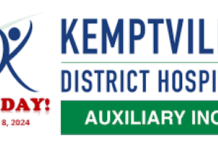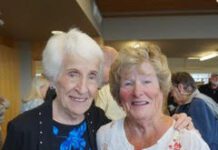I was listening to a program on NPR about libraries and librarians, and it got me thinking. I grew up in my grandfather’s house, a man who left school at 8, but surrounded himself with books: history, politics, Readers Digest Condensed volumes. Very few people in my neighbourhood had such books, or read anything more than the evening newspaper. It was a great start to life for me. Then one day, I think I must have been about 12 or 13, they opened a library about a 30 minute walk away from our house. I can still remember how I felt the first time I walked into that building. It was basically one big room, with shelves of books on all sides, I could not believe my eyes: all this was there for me to look through, search the shelves, so many different subjects and categories.
And it was free! I was actually allowed to choose a book – untold riches, many books – and take it away with me to read at home. Two whole weeks of free reading, free books, and then, more books for another two weeks! Incredible. I have never got over the amazing gift I found in the local library. I read everywhere, even walking down the road to and from the shops.
I can still smell those books, see the many-coloured rows of books, their spines engraved with the titles. There was the incredible joy of discovering P. G. Wodehouse, “English Literature’s performing flea, as one Irish writer called him. I read Caesar’s Gallic Wars (probably in a translation for non-academics), I read children’s books (Enid Blyton and Swallows and Amazons). I read Dostoevsky, for goodness’ sake, as a teenager.
Going to university, I found an even bigger library. Instead of reading the books for my courses, I browsed through the rows and rows, picking up books on every subject, just to see what they had to say. What treasures were found there, opening doors to ideas and literature and history and stories. It is a habit I continue to enjoy to this day, more than half a century later.
For a few years in the mid-1970’s, I actually worked in a local library. This was in the Dark Ages, before computers, when the only technology was the ink stamp we used to stamp in the return date on books being taken out by customers. Each book had a little card tucked into the inside cover with the author’s name, etc., which we took out and put in a file until the book was returned. Another world. But I sometimes find discarded library books in secondhand stores, with the little card still inside the cover, and it brings me right back to Dun Laoghaire Library.
Libraries are much more than they were in those days: audio books, dvd’s, e-books, and so much more. But there’s still something wonderful, even magical, about an actual printed paper book. The tactile enjoyment of turning pages, looking at the type and style, keeping your place with a bookmark, or a torn piece of paper (never, ever turning down the corner of the page!). Experts say that people remember more of the content of an actual book than they do with audio books. I know someone who uses audio books to put them to sleep. Just saying.
Perhaps I was different in the way I came to appreciate books, though I doubt it. My Grandfather, the man who surrounded himself and me with books, was also a printer. He apprenticed me one summer, teaching me how to load type. There were large drawers of metal letters, each letter in its own little compartment, and you had to put them in a stick, to form words and sentences to be printed on an ink-fed hand-powered machine. The letters were reversed, so that they would print the right way around: mind-bending at first, then done without thinking. That may be why I love to see the typeface used in different books, even though no-one uses a stick anymore, and moveble type, that once revolutionary technology that changed the world, is now a fascinating museum entry.
But the books survive, in spite of computers and tablets and audio versions, and people still have the pleasure of holding a bound book, turning the pages, reading words in beautiful forms. There is a real miracle in reading: a collection of shapes put together in different combinations means something to us. This word “beautiful” tells us something that no other collection of letters does, and still we can’t actually define it in words. Amazing. And we have entire books full of words, and we understand what they mean, and they can make us laugh, or cry, or become angry, or sad. And, I believe, that effect is enhanced when they appear printed on paper pages, bound together in a soft or hard cover, with the pages numbered and easy to find when we come back after putting the book down for a while.
“I declare after all there is no enjoyment like reading! How much sooner one tires of any thing than of a book! — When I have a house of my own, I shall be miserable if I have not an excellent library.” “The best moments in reading are when you come across something – a thought, a feeling, a way of looking at things – which you had thought special and particular to you. Now here it is, set down by someone else, a person you have never met, someone even who is long dead. And it is as if a hand has come out and taken yours.”
I think I read that somewhere.





